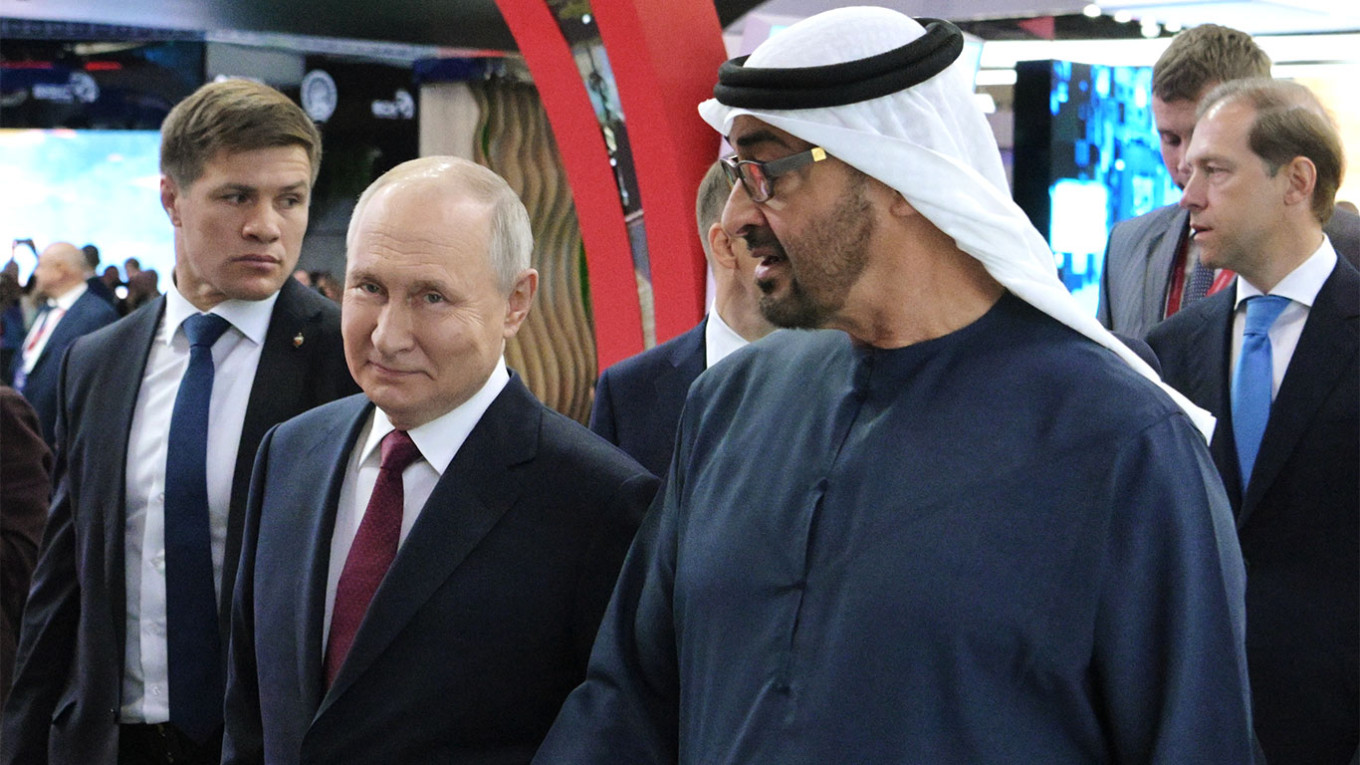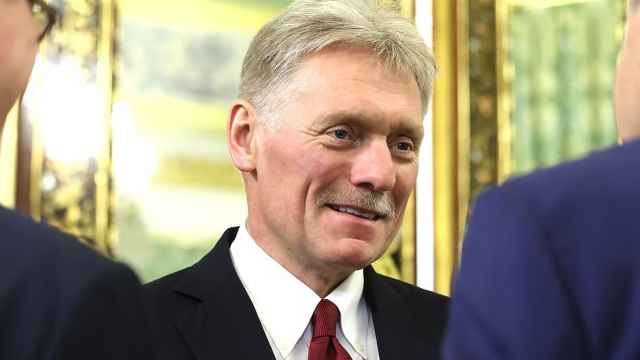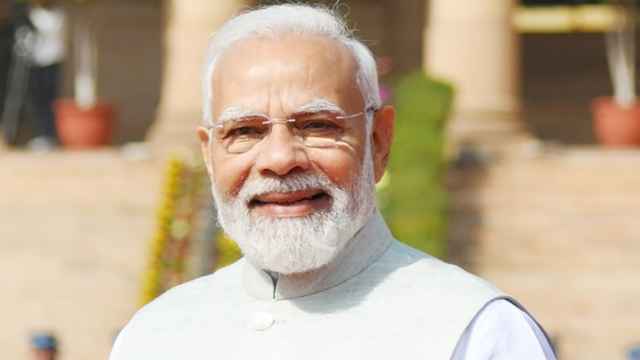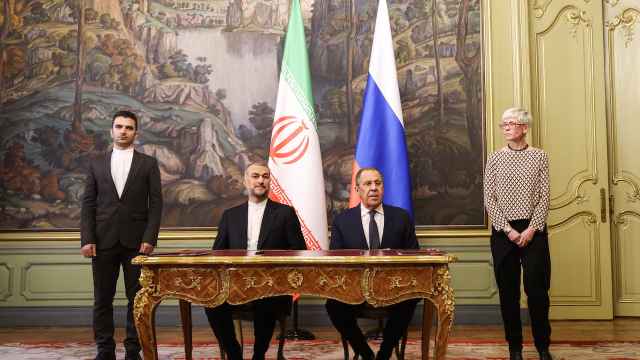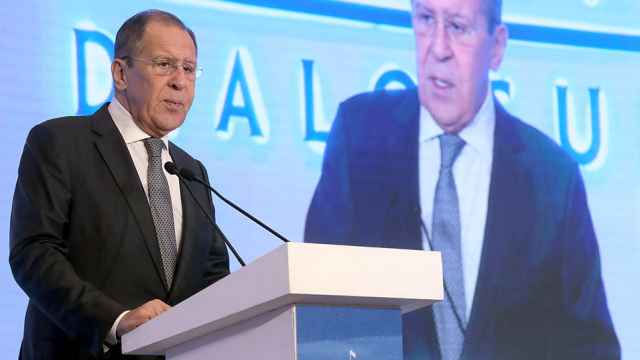Allying with the Middle East remains a hard sell to many ordinary Russians, given how incompatible Sharia-inspired local laws are with the sort of lifestyle they are accustomed to. Yet the Kremlin continues to pivot toward the fractured Arab World as relations with the collective West hit rock bottom and approach a point of no return.
The UAE’s newly coined “zero problems” doctrine has very little to do with geostrategic hedging, pursuing apparently contradictory policies towards other states. Instead, it serves as a litmus test of its new autonomy by building bridges with its neighbors. In light of the Gulf Cooperation Council (GCC)’s overt disillusionment with U.S. President Joe Biden — who they view as having a softer touch than his predecessor — Moscow is determined to muster as much support from the GCC’s six constituent states during the narrow window left until next year’s general elections.
Last week, the Moscow State Institute of International Relations, Russia’s most prestigious university for future diplomats, unveiled its “UAE Lecture Hall” — the latest carrot offered to Abu Dhabi on the heels of its much-vaunted admission into BRICS. Russian Foreign Minister Sergei Lavrov heralded the promising trajectory bilateral ties between both nations are on. Russia’s trade turnover with the UAE stands at a record-breaking $10 billion in just the first eight months of 2023, which coincides with the latter’s deviation from its traditional Western partners.
Dubai has emerged as the go-to destination for Russian oligarchs, jet-setting social media influencers, oil traders and tech entrepreneurs. Blue-chip multinationals which ceased operations in Russia following the full-scale invasion of Ukraine such as Google, Goldman Sachs and Allen & Overy have also relocated their Moscow-based staff to the glitzy city-state. That said, Dubai’s fleeting real-estate and retail boom, engendered by the sudden capital injection from wealthy Muscovites, will likely be more than offset by impending Western-led pressure tactics.
According to The Wall Street Journal, high-ranking officials from the United States, the European Union and Britain press-ganged the UAE into changing course during a diplomatic visit to the federation last week. Having paid mere lip service to ending Russia’s war thus far, it is time the aforementioned G7 members tightened the sanctions loopholes fence-sitters in the Global South are exploiting to help Putin replenish his war chest.
Clearly, reinstating the UAE on the Financial Action Task Force grey list has not proven humiliating enough to jolt its leadership into action. However, stripping them of Annex II status, which affords their passport holders visa-free access to Europe’s borderless Schengen Zone, will almost certainly spark a backlash from the Emirati population. This could force the Emirati government to re-evaluate the merits of its partnership with Moscow.
Furthermore, the pivotal role that flagship national carriers like Emirates and Qatar Airways play in facilitating the mass exodus of disaffected Russians can no longer be ignored by the West. Amid widespread fears of another mobilization, draft dodgers are already hatching their escape routes and heading further afield than ex-Soviet republics like Kazakhstan, Georgia and Armenia.
Regional aviation hubs — namely Dubai and Doha — have positioned themselves as springboards for these prospective conscripts to skirt around travel constraints and access mainland Europe. Similarly, a growing pool of budget-conscious, fighting-age Russian emigres are transiting through the Gulf en route to Southeast Asia, where they are subject to fairly lax entry requirements and less at risk of being repatriated if called up.
The Emirati regime has gone from performing a balancing act between East and West to outright flaunting its sympathy towards Russia. UAE President Mohammad Bin Zayed even stressed the need to build on this relationship during his meeting with Putin in mid-June, while Dubai’s iconic Burj Khalifa was illuminated in the Russian tricolor on Russia Day.
The Emirates has its fingerprints all over Moscow’s underhand commercial dealings with third-party jurisdictions. UAE-domiciled logistics firms have been accused of transporting Iranian-made Shahed UAVs and spare parts to the Kremlin. The Emirates have also been accused of wielding their influence to help the Wagner Group secure gold-mining rights in Sudan. Furthermore, they have partnered with India and Russia to further their de-dollarization agenda by building a framework for using local currencies in cross-border transactions.
However, the UAE’s nefarious activities, as well as those of fellow OPEC member Saudi Arabia joining with Russia to extend oil production cuts and send crude prices through the roof to over $90 a barrel, have been met with silence. Given this, it is perplexing how sanguine Ukrainian President Volodymyr Zelensky was about the recent Jeddah peace talks bearing fruit.
The fact that this summit marked his second trip to the Kingdom in a matter of months speaks volumes of the importance Zelensky erroneously attaches to Saudi Arabia as an honest broker. Rather, its crown prince Mohammed Bin Salman is driven purely by self-interest and consumed with inflating his own ego. MBS saw the meeting as as a stepping stone to mediate other high-stakes conflicts such as the ongoing Sino-India border dispute and in doing so, rehabilitate his tarnished image without paying through the nose. Zelensky is mistaken in believing that the war-profiteering Gulf despots will intervene in a battle between democracy and autocracy.
Crippling secondary sanctions could be the free world’s weapon of choice against malign actors like Saudi Arabia and the UAE. As a safe haven that brazenly harbors hundreds upon thousands of Russian citizens and insulates them from the blowback of Putin’s war, there is no conceivable reason why Dubai should not be treated as a cobelligerent akin to Tehran or Minsk. The Emirate of Dubai’s pro-business ruler Mohammed Bin Rashid Al Maktoum has arguably just as much blood on his hands as Belarus’ dictator Alexander Lukashenko and Iran’s Supreme Leader Ayatollah Khameini. He is at the forefront of laying out the red carpet for questionable Russian figures snapping up luxury properties left, right and center in “Dubaigrad.” Making an example of him could make other rulers think twice about who they want to side with.
Finally, the potential return of Republican frontrunner Donald Trump to the White House risks turning the burgeoning Russo-Gulf alliance on its head. Neither the Russians nor the omnipresent Chinese can supplant Washington as guarantors of maritime security on the volatile Arabian Peninsula. Bahrain still hosts the U.S. Naval Forces’ Central Command and Fifth Fleet, whereas 10,000 American military personnel remain stationed at the Al Udeid Air Base in Qatar.
The West has a nuclear option at its disposal — notably the Global Magnitsky Act — to hold Al Maktoum’s feet to the fire. Such a draconian move, could not only break the back of Russia’s economy but also deter other hereditary monarchies in the region from following suit. With this, an alliance with Moscow could become far less attractive for the region.
A Message from The Moscow Times:
Dear readers,
We are facing unprecedented challenges. Russia's Prosecutor General's Office has designated The Moscow Times as an "undesirable" organization, criminalizing our work and putting our staff at risk of prosecution. This follows our earlier unjust labeling as a "foreign agent."
These actions are direct attempts to silence independent journalism in Russia. The authorities claim our work "discredits the decisions of the Russian leadership." We see things differently: we strive to provide accurate, unbiased reporting on Russia.
We, the journalists of The Moscow Times, refuse to be silenced. But to continue our work, we need your help.
Your support, no matter how small, makes a world of difference. If you can, please support us monthly starting from just $2. It's quick to set up, and every contribution makes a significant impact.
By supporting The Moscow Times, you're defending open, independent journalism in the face of repression. Thank you for standing with us.
Remind me later.


